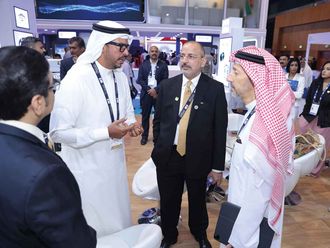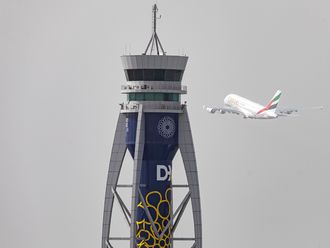
The Society for Human Resource Management in Middle East & North Africa (SHRM MENA) is set to orchestrate a gathering of the most influential minds in the HR and Technology industries for its Annual Conference and Expo 2023.Taking place at the luxurious Atlantis The Palm, Dubai, on November 1st and 2nd, 2023, this premier HR Tech event aims to explore cutting-edge strategies to navigate the rapidly changing world of work.
With the theme "Together Towards Tomorrow," the event will unite luminaries, thought leaders, and decision-makers to underscore the importance of forging enduring workplace partnerships, learning from challenges, and collaboratively shaping a brighter future for workplaces.
Johnny C. Taylor, Jr., President & CEO, SHRM said: “The world of work is evolving at an unprecedented pace, ushering in an era of uncertainty for employment, corporate culture, and leadership. Amid this transformation, several key trends are reshaping workplaces. Understanding these trends is vital for organizations preparing for the future. SHRM MENA 2023 will address these trends and the way forward in the workplace regionally and globally.”
Among the most pressing and important topics on SHRM MENA Conference agenda is Artificial intelligence (AI) which is advancing rapidly, automating tasks currently performed by humans. While this may displace jobs in some sectors, it will also create new opportunities. AI, when combined with human intelligence, has the potential to enable remarkable achievements. For instance, in manufacturing, AI-powered robots are enhancing productivity and precision, reducing error rates, and improving overall efficiency. As AI evolves, it's essential for employees to embrace it as a tool that enhances their work, not as a threat to their jobs. Organizations must invest in upskilling their workforce to harness the full potential of AI, focusing on skills that are uniquely human, such as critical thinking, creativity, and emotional intelligence.
Another topic is the remote work. The workforce is becoming more geographically dispersed, with remote work on the rise. This shift fosters diversity and multiculturalism, offering a broader talent pool for organizations. The challenge lies in finding a balance that accommodates both remote and in-office work preferences. Hybrid work models are emerging as a solution, allowing employees to work remotely part-time while fostering in-person collaboration and maintaining a sense of company culture.
Modern employees seek jobs that align with their values. They demand social responsibility and sustainability from their employers. This shift is significantly impacting employment, prompting organizations to adopt a more ethical and sustainable approach to business operations. Companies that prioritize corporate social responsibility (CSR) and sustainability are not only attracting top talent but also experiencing increased customer loyalty and improved brand reputation. This values-driven approach extends beyond philanthropy; it involves integrating ethical practices into every aspect of the organization, from supply chain management to product development.
The future of employment is marked by greater flexibility and fluidity, with individuals juggling multiple roles and remote or hybrid work becoming the norm. Adapting to diverse work settings and developing digital skills is essential. Non-automatable skills like creativity and empathy will be highly sought after. In the realm of culture, inclusivity takes center stage. Workplaces must embrace diversity, fostering an environment where every employee feels valued and empowered. Initiatives like employee resource groups and mentorship programs are pivotal in promoting inclusivity. In leadership, adaptability is key. Future leaders need to inspire and motivate in rapidly changing environments, utilizing continuous learning, technology, and data-driven insights for informed decision-making.
Johnny added: “Effective communication and positive relationships between employees and managers are critical for productivity and reducing turnover. Open dialogue, regular feedback, and comprehensive training programs can alleviate these issues. Managers must create an environment where employees feel comfortable expressing concerns. Employee engagement is vital for productivity and retention. Recognizing hard work, fostering a positive culture, and providing growth opportunities enhance engagement. Surveys and personalized feedback sessions help identify areas for improvement.”
He continued: “Mental health challenges are increasing, exacerbated by workplace stress. Employers can support employees by offering resources like counseling services and mental health days, fostering a supportive environment, and providing flexible work arrangements. Mental health awareness programs and stress management workshops further bolster well-being. Achieving a work-life balance remains a challenge. Employers can help by offering flexible work arrangements, supporting working parents, and discouraging excessive work outside office hours. Managers should respect employees' time and encourage a healthy work-life balance.”
Fostering diversity and inclusion is crucial. Initiatives like unconscious bias training and employee resource groups can promote diversity. Regular assessment and adaptive strategies are essential for meeting evolving workforce needs and expectations.
Addressing the evolving landscape of work, workers, and the workplace requires a concerted effort from both employers and employees. By working together to embrace change and participating in events like the SHRM MENA Conference and Expo 2023, organizations can create more positive and productive environments for everyone involved.












